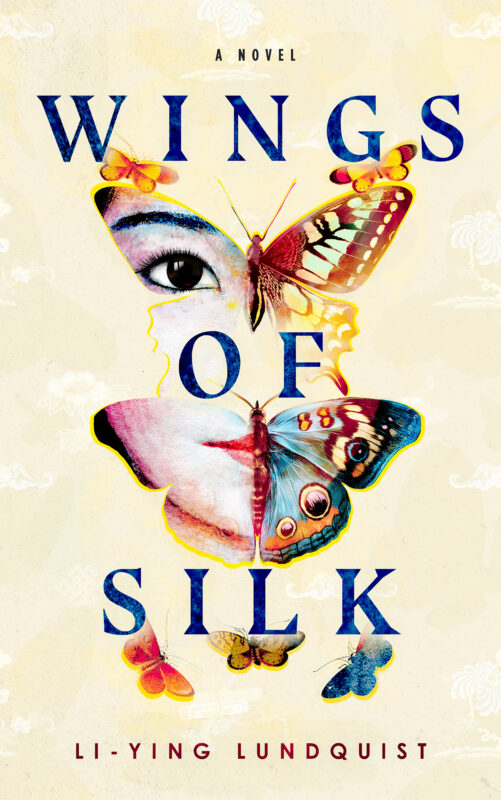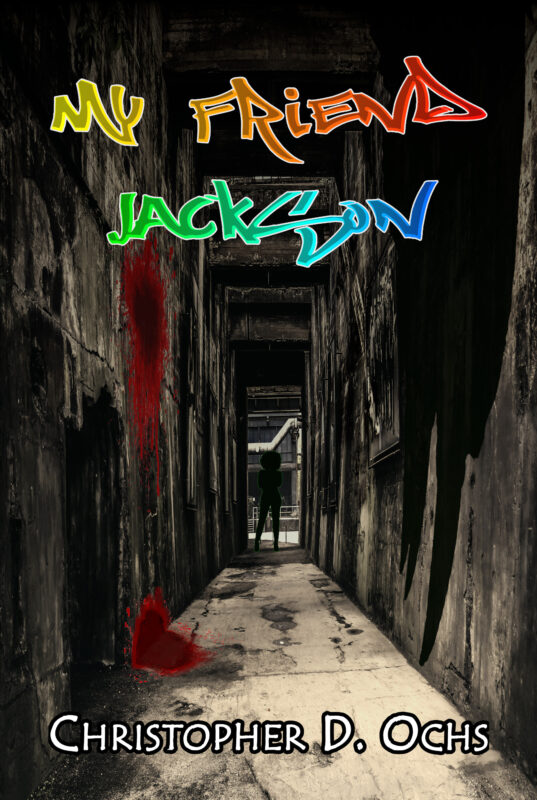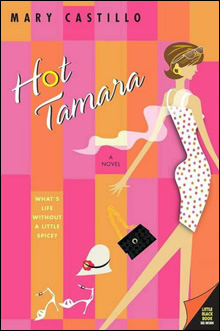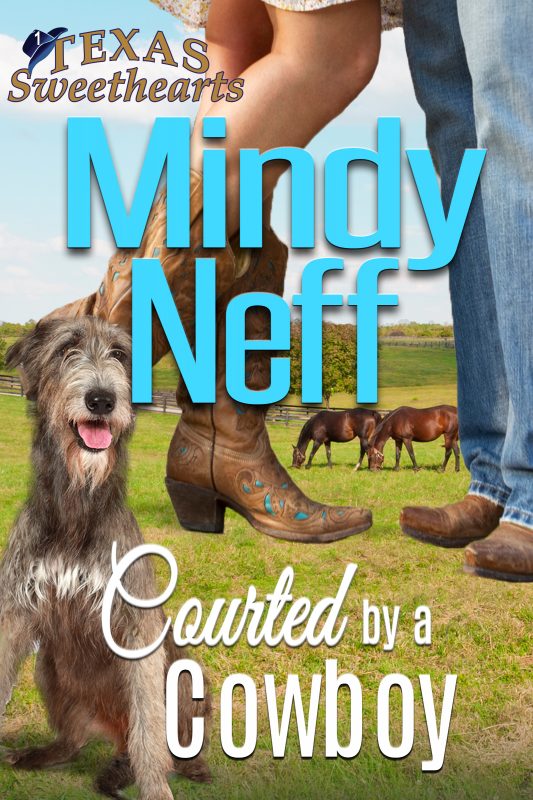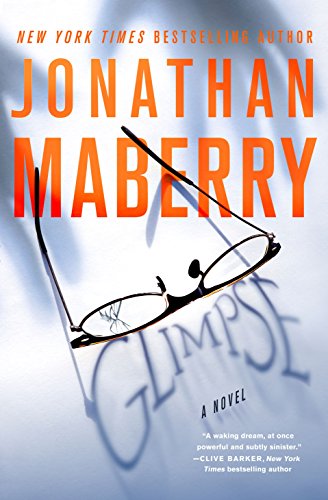BUT WHY?
April 19, 2008 by A Slice of Orange in category Archives tagged as Member At Largeby
Monica Stoner, Member at Large
As many OCC members know, I am involved in raising and showing dogs. This means putting the product of many years of thought and effort out there for someone else’s opinion. Sound familiar? After years of experience, you know as you watch the rest of the entry you have one of the better if not the best examples of the breed in the ring on that day. All things being equal, you should walk out with the purple Winner’s ribbon. Instead you end up placed behind one of the dogs you dismissed at first glance.
Sound familiar? Sound like all the times we’ve sent our manuscript “children” out for the opinion of someone else, in most cases someone we have never met, and might never meet. The major difference being we aren’t standing in front of the editor, best and brightest smile pasted on our faces, watching them try not to show any reaction as they go over our child. The editor doesn’t know us from Adam unless we’re multi-published.
In theory, dog shows are judged in an atmosphere of anonymity. In practice, judges have been around shows for decades and know many of the major exhibitors, who would be the dog world equivalent of multi-published. There are also professional dog handlers, who make a living showing dogs for other people. Depending on their level of success and recognition, they would be the writer’s equivalent of anything from already published to NYT best sellers.
With this amount of competition, how can a novice owner handler hope to compete successfully. Well, by competing. By training and grooming their dog to the best of their ability, choosing their outfits to best show off their dog, and by walking into the ring looking the absolute best they can. Wasn’t it Woody Allen who said 90% of success consists in showing up?
In the beginning you might lose, a lot. If you are able to stand back and take an objective look at your dog, or if you know someone who will be honest without being mean, you might find out your grooming could be a little better, or maybe you need to spend some more time practicing ring procedures at home before your next show. You might also find out there’s nothing intrinsically wrong with your dog, it’s just not in the judge’s style, or on that day they found a dog they liked better than yours.
By the same token, if you have taken that huge step to submit your book to an editor, only to have it come flying back with a “not for us at this time” photocopied rejection, rather than sink into ten year’s worth of gloom and swear off writing forever, maybe it’s time to take an objective viewpoint. Was this the absolute best manuscript you could have submitted? Are the characters truly fresh, and if so, do you give them enough challenges to make readers want to know them better? Is your submission groomed, polished and presented in the best possible light?
If so, and your book is still rejected, take a moment to think about the person at the other end of the transaction. Maybe yours is the umpteenth fresh new look at a Vulcan mind meld sex slave time travel futuristic vampire demon slayer they have seen this week and they read one yesterday they liked just a little bit better. Maybe the editor really, really can’t stand one more perky cheerleader type with porcelain skin, a double masters, perfect boobs and a minor in ancient Romanian mythology who spent summers working for Doctors Without Borders and winters perfecting her Olympic quality death spiral. Maybe the editor is human, is having a bad day, and your manuscript got in the way of her lying down with a cold rag over her eyes while dreaming of the words dancing rising up off the page to scratch her eyes out. Or maybe your book just isn’t what this particular publisher is looking for at this particular time.
You won’t win if you don’t enter, and you won’t sell if you don’t submit. More to the point, if you don’t enjoy the writing process, or at least feel success at having written, and your entire writing psyche is bound up with someone else’s approval, you’re going to set yourself up for major disappointment. Stop and smell the roses from time to time, have a chocolate chip cookie, call your best friend for a good whine fest, then fill out that entry form, send out that manuscript, and maybe this time you’ll have the zombie lovers on Pluto story they’ve been looking for all along.
Monica K. Stoner
tsent@ix.netcom.com
The Write Way……..
April 18, 2008 by A Slice of Orange in category ArchivesBy Maureen Child
Well, I missed my blog day yesterday and all I can cry is DEADLINE!
That’s the thing about being a working writer–when you’re in the sprint to the finish line, everything else falls by the wayside. Housework, cooking, husbands, kids, BLOGS. I’m not saying that’s a good thing, but it seems to be inevitable.
By the time you’re at the end of your book and the deadline is looming and you know there’s an editor somewhere in New York scrubbing her hands together waiting to get hold of your manuscript, that’s ALL you can think about.
You’ve lived and breathed with these characters for weeks–sometimes months. You’ve been their creator, their co-conspirator, their tormentor and because of all of that, you’re much too involved with your fictional world to look up and notice the real world.
That’s a good thing, usually. But let me be the first to say, don’t let the fictional world keep you in thrall for too long. Fight your way past your characters and your stories to make sure your real world gets plenty of attention, too. And yes, I do see the irony in me handing out that advice. But I got a wake up call last night and I vow that my real world is from now on going to be every bit as vivid as my fictional one………..
Maureen Child is the author of more than 100 books. She’s a RITA finalist this year along with being a finalist in the National Readers Choice awards. She is, at the moment, outside, enjoying the real world.
Eye On Hollywood
April 13, 2008 by A Slice of Orange in category Archives tagged as Bobbie Cimo, Eye on HollywoodLife is like a box of chocolates…
Writing my monthly blog, “Eye On Hollywoodâ€, sometimes has me feeling like the Forrest Gump of OCC. You see, not only were Forrest and I both raised in Alabama–both had supportive Mamas, but each of us has had a story about either an important event or a famous person we have met. We both got awards, too. Forrest Gump received an Oscar, by being voted best movie of the year..,and me, an Emmy, simply cause I asked for it. No, they weren’t just giving them away. I happened to mention jokingly to an Art Director, who had just won his ninth award that if he wanted to balance out the look of his book shelf, he should give me the extra award. Surprisingly, he handed it over to me. And now the statue, has found a prominent place in my living room. Something like this could only happen to Forrest Gump…oh, and me.
But the similarities between Forrest and myself doesn’t end there…as we both have met Presidents and have had our pictures taken with them. Actually, I also got to meet two First Ladies, as well.
I met Gerald Ford’s wife, Betty, while I was working on the American Film’s Life Time Achievement Awards for Fred Astaire. And up until a few months ago, I would see Nancy Reagan, on a monthly basis, at my beauty salon. When her husband died, I offered her my condolences and gave her words of encouragement, as she reminded me so much of my mother after my own father’s passing. Mrs. Reagan was always sweet, but very quiet and became more frail looking after her husband’s death.
This might have been a coincidence, but I also noticed that the two young and handsome Special Agents that normally accompanied her to hair appointments, were soon replaced by older, heavier Agents, after Ronnie’s passing. And on more than one occasion, the Agents were amused by the tin foil on my head and the blue goo running down from my scalp, as I passed them by the shampoo bowl (I know it‘s shocking to believe…but I’m not a natural blonde).
As far as me meeting a President…. Well, one thing I’ve learned with working with celebrities, and especially men, is that they all have egos. So all I had to do, as he was being shuffled away by a entourage of Special Agents and body guards, was to call out, “Oh, Mister Presidentâ€. Ignoring the urging of his security team to proceed towards the exit and onto his waiting car, President Clinton turned around and walked back to the twenty or so, CBS employees, who were being roped off by studio security. He shook hands and converse with each and every one of us. Luckily, someone down the hall from the News Department, happened to be there testing a new camera.
With a world population of over six billion people and only 43 men and 43 woman who can claim the title of either being a President or a First Lady of The United States of America, did I ever think I’d get the opportunity to meet one of them? Well, I should have paid more attention to Forrest’s words and realized– you just never know….
********************************
Bobbie Cimo is the OCC/RWA Programs Director who has brought us such notable speakers as Dean Koontz, Tami Hoag, Jackie Collins and Robert Crais.
A Writer’s Pursuit…
April 12, 2008 by A Slice of Orange in category Archives tagged as A Writer's PursuitOf Answers About Novel Excerpts On Websites
Since my March post on A Slice of Orange, I have finished my dark paranormal romance novel. Woo-hoo! I’m thrilled to read on paper what has possessed my thoughts for months.
This story, its characters…Sigh. I can’t even count how many times my hero and heroine moved me to type as the tears stung my eyes then grin and break out into laughter as they got to know one another; how many times my neck stiffened from the tension held there because I feared for their lives as they fought the evil encroaching on the village; and how with a simple touch or a courageous deed, they made me fall devotedly in love over and over. Yes, I’m passionate about this book, and I’m just as excited to start the proposals for the next two in trilogy as well. I can’t wait!
But right now, I’m polishing my synopsis and query letter for this one so I can send this baby out…And I’ve got to tell you, it was easier writing the book than writing this synopsis! (It’s coming along, though…I think. No, it really is. Maybe. Argh. LOL)
I do have some questions for all of you, published and unpublished, and any comments and suggestions are most welcome. 🙂
* What do you think about unpublished writers posting excerpts of their stories on their websites? See, I hadn’t considered this when I was querying agents or editors before with a historical romance. But, with this paranormal, I’m thinking I should…and I’m curious as to your opinion about doing so.
Pros and Cons?
1. If you say yes, then would you put up the first couple of chapters? Or a writing sample from somewhere else in the story?
2. If you say no, then what are your reasons behind that decision?
3. Any other thoughts?
I look forward to reading your answers! Thanks!
Michele
 Michele Cwiertny writes dark paranormal romance set in a fictional town in Maine (her favorite place in the world). To find out more about her, please visit her website, michelecwiertny.com, or her personal blog, Michele’s Writing Corner.
Michele Cwiertny writes dark paranormal romance set in a fictional town in Maine (her favorite place in the world). To find out more about her, please visit her website, michelecwiertny.com, or her personal blog, Michele’s Writing Corner.
Video Podcasting Madness
April 11, 2008 by A Slice of Orange in category Archives tagged as Confessions of a Podcast Goddessby Jina Bacarr
The RWA Conference in San Francisco is only a few months away. It seems like only yesterday we were heading to Dallas for the 2007 conference. Ah, the memories…here are three (3) videos from the RWA Conference in Dallas, Texas for you to enjoy!
First up is SUSAN SQUIRES and the interview I did with her in the lobby of the Hyatt Regency Hotel:
Next is BOBBIE CIMO, OCC Program Director:
Can you imagine a hotel ballroom filled with 450 of your favorite romance authors?
Join me as I take you to the Literacy Signing at the RWA Conference in Dallas. This is one of the most popular events at the yearly conference as I take you behind the scenes.
That’s it for this month!! I’ll have more video podcasting madness for you in May.
Best, Jina
Jina Bacarr is the author of The Blonde Geisha , Naughty Paris, Tokyo Rendezvous, a Spice Brief, and her new erotic spy thriller, Spies, Lies & Naked Thighs.
Check out her MySpace page and meet Breezy Malone, the heroine in Spies, Lies & Naked Thighs.
“Get Caught in the Act!”
Are you going to RWA San Francisco? Check out Brenda Novak’s auction and bid on a chance to have your own podcast!!
I’ll be doing a podcast for a lucky winner as well a critique and luncheon at the RWA Conference this summer! Bidding starts May 1st.
Affiliate Links
A Slice of Orange is an affiliate with some of the booksellers listed on this website, including Barnes & Nobel, Books A Million, iBooks, Kobo, and Smashwords. This means A Slice of Orange may earn a small advertising fee from sales made through the links used on this website. There are reminders of these affiliate links on the pages for individual books.
Search A Slice of Orange
Find a Column
Archives
Featured Books
MY FRIEND JACKSON
Can Jasmine untangle her life and reclaim her identity, her life—her soul?
More info →GLIMPSE
A chilling thriller that explores what happens when reality and nightmares converge, and how far one will go to protect the innocent when their own brain is a threat.
More info →Newsletter
Contributing Authors
Search A Slice of Orange
Find a Column
Archives
Authors in the Bookstore
- A. E. Decker
- A. J. Scudiere
- A.J. Sidransky
- Abby Collette
- Alanna Lucus
- Albert Marrin
- Alice Duncan
- Alina K. Field
- Alison Green Myers
- Andi Lawrencovna
- Andrew C Raiford
- Angela Pryce
- Aviva Vaughn
- Barbara Ankrum
- Bethlehem Writers Group, LLC
- Carol L. Wright
- Celeste Barclay
- Christina Alexandra
- Christopher D. Ochs
- Claire Davon
- Claire Naden
- Courtnee Turner Hoyle
- Courtney Annicchiarico
- D. Lieber
- Daniel V. Meier Jr.
- Debra Dixon
- Debra H. Goldstein
- Debra Holland
- Dee Ann Palmer
- Denise M. Colby
- Diane Benefiel
- Diane Sismour
- Dianna Sinovic
- DT Krippene
- E.B. Dawson
- Emilie Dallaire
- Emily Brightwell
- Emily PW Murphy
- Fae Rowen
- Faith L. Justice
- Frances Amati
- Geralyn Corcillo
- Glynnis Campbell
- Greg Jolley
- H. O. Charles
- Jaclyn Roché
- Jacqueline Diamond
- Janet Lynn and Will Zeilinger
- Jaya Mehta
- Jeannine Atkins
- Jeff Baird
- Jenna Barwin
- Jenne Kern
- Jennifer D. Bokal
- Jennifer Lyon
- Jerome W. McFadden
- Jill Piscitello
- Jina Bacarr
- Jo A. Hiestand
- Jodi Bogert
- Jolina Petersheim
- Jonathan Maberry
- Joy Allyson
- Judy Duarte
- Justin Murphy
- Justine Davis
- Kat Martin
- Kidd Wadsworth
- Kitty Bucholtz
- Kristy Tate
- Larry Deibert
- Larry Hamilton
- Laura Drake
- Laurie Stevens
- Leslie Knowles
- Li-Ying Lundquist
- Linda Carroll-Bradd
- Linda Lappin
- Linda McLaughlin
- Linda O. Johnston
- Lisa Preston
- Lolo Paige
- Loran Holt
- Lynette M. Burrows
- Lyssa Kay Adams
- Madeline Ash
- Margarita Engle
- Marguerite Quantaine
- Marianne H. Donley
- Mary Castillo
- Maureen Klovers
- Megan Haskell
- Melanie Waterbury
- Melisa Rivero
- Melissa Chambers
- Melodie Winawer
- Meriam Wilhelm
- Mikel J. Wilson
- Mindy Neff
- Monica McCabe
- Nancy Brashear
- Neetu Malik
- Nikki Prince
- Once Upon Anthologies
- Paula Gail Benson
- Penny Reid
- Peter J Barbour
- Priscilla Oliveras
- R. H. Kohno
- Rachel Hailey
- Ralph Hieb
- Ramcy Diek
- Ransom Stephens
- Rebecca Forster
- Renae Wrich
- Roxy Matthews
- Ryder Hunte Clancy
- Sally Paradysz
- Sheila Colón-Bagley
- Simone de Muñoz
- Sophie Barnes
- Susan Kaye Quinn
- Susan Lynn Meyer
- Susan Squires
- T. D. Fox
- Tara C. Allred
- Tara Lain
- Tari Lynn Jewett
- Terri Osburn
- Tracy Reed
- Vera Jane Cook
- Vicki Crum
- Writing Something Romantic
Affiliate Links
A Slice of Orange is an affiliate with some of the booksellers listed on this website, including Barnes & Nobel, Books A Million, iBooks, Kobo, and Smashwords. This means A Slice of Orange may earn a small advertising fee from sales made through the links used on this website. There are reminders of these affiliate links on the pages for individual books.




